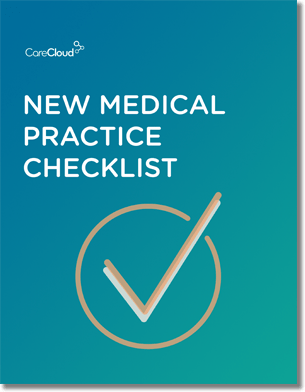Although stopping short of naming names, the Office of the National Coordinator for Health Information Technology released a report that charges many healthcare stakeholders with ‘information blocking.’ Some hospitals, providers and technology vendors, they say, intentionally act to prevent or discourage the appropriate exchange of health data between different systems.
At CareCloud, we applaud ONC’s move to call some industry players to task for restrictive data practices. We believe an open platform drives the greatest innovations in healthcare technology and the best outcomes for patients. In fact, it’s a core part of our mission:
“… to re-platform healthcare with modern, cloud-based solutions.
Our open platform is intended
to help providers maximize
the efficiency and effectiveness of their practices,
while connecting and collaborating directly with patients
in support of better care.”
That’s why we’re so pleased to see the ONC report already spurred some change.
ONC wants to end the practice of “charging prices or fees … that make exchanging and using electronic health information cost prohibitive.” Within one week, major health IT vendors announced they would absorb and stop charging for record sharing fees.
Protecting Patient Data
Information blocking occurs when “persons or entities knowingly and unreasonably interfere with the exchange or use of electronic health information,” ONC says in their 39-page Report to Congress on Health Information Blocking.
But not every restriction on information is intentional or malicious — some are critical and required by state or federal law. Restricting access to data to protect patient safety and improve health care remains essential, ONC says.
Some providers, however, are hiding behind HIPAA. “It has been reported to ONC that privacy and security laws are cited in circumstances in which they do not in fact impose restrictions,” the report states. “For example, providers may cite the HIPAA Privacy Rule as a reason for denying the exchange of electronic protected health information for treatment purposes, when the Rule specifically permits such disclosures.”
What ONC Wants
“Sharing information seamlessly across the care continuum is fundamental to moving to a person-centered, high-performing health care system,” according to the ONC report.
Their targeted strategies to get there include:
* Financial Incentives: Creating health care payments and other market strategies that reward interoperability and data exchange and discourage information blocking (in coordination with CMS).
* Clarity: Promoting greater transparency in certified health IT products and services.
* Market forces: Fostering competition and innovation in health IT and health care.
ONC wants to break open closed information systems — what they call “walled gardens.”
“Customers who become ‘locked in’ to a particular technology may find it prohibitively expensive to switch to new technologies (or different delivery networks) that offer superior value, capabilities, and opportunities for delivering higher quality and more efficient care,” the report states.
Physicians and practice managers should have the right to choose software that makes their lives easier. And, most importantly, we believe electronic health systems that openly share data in a secure and efficient way will advance care coordination and improve patient outcomes.

Do you know what you need when setting up a new medical practice?


